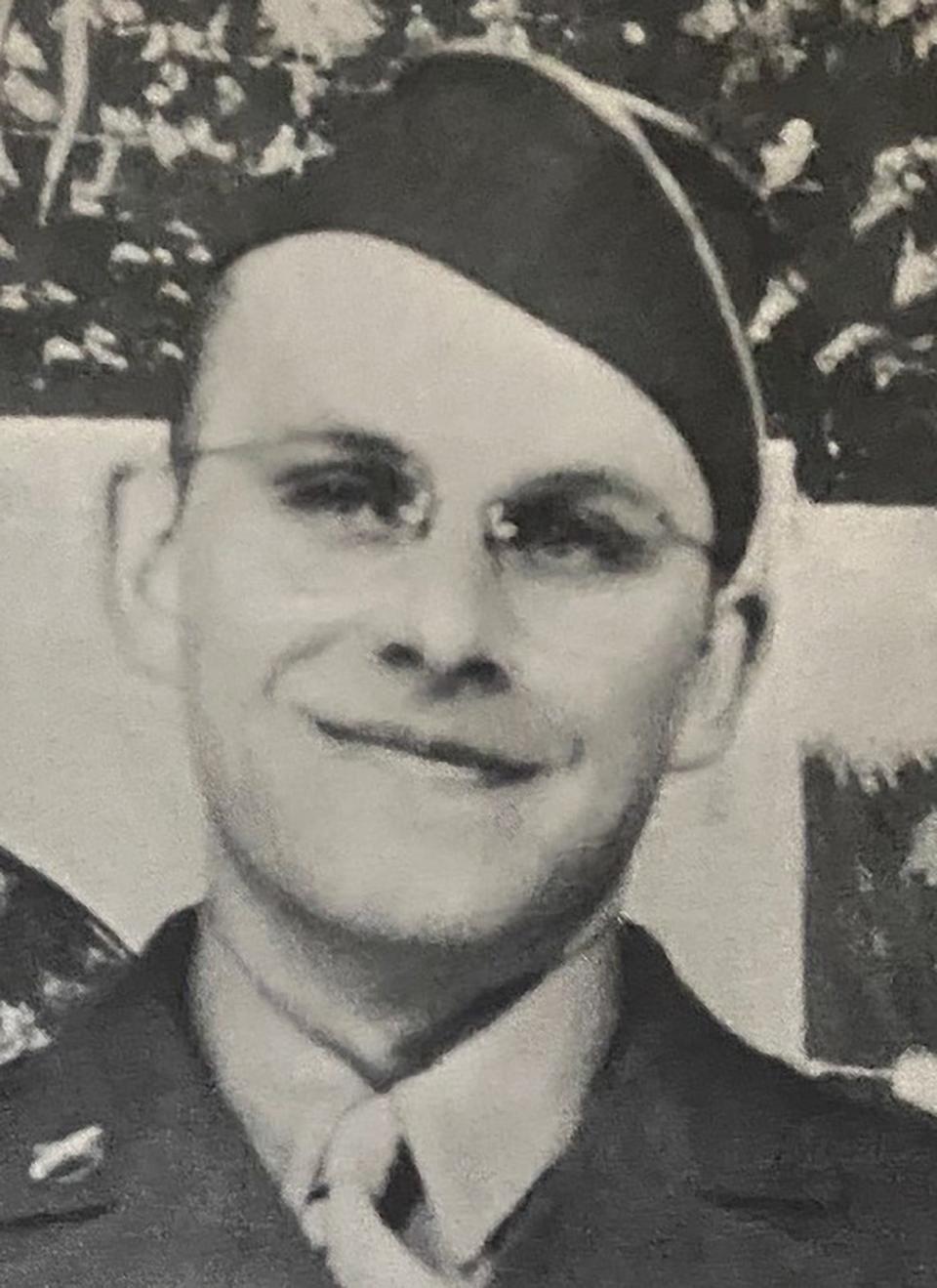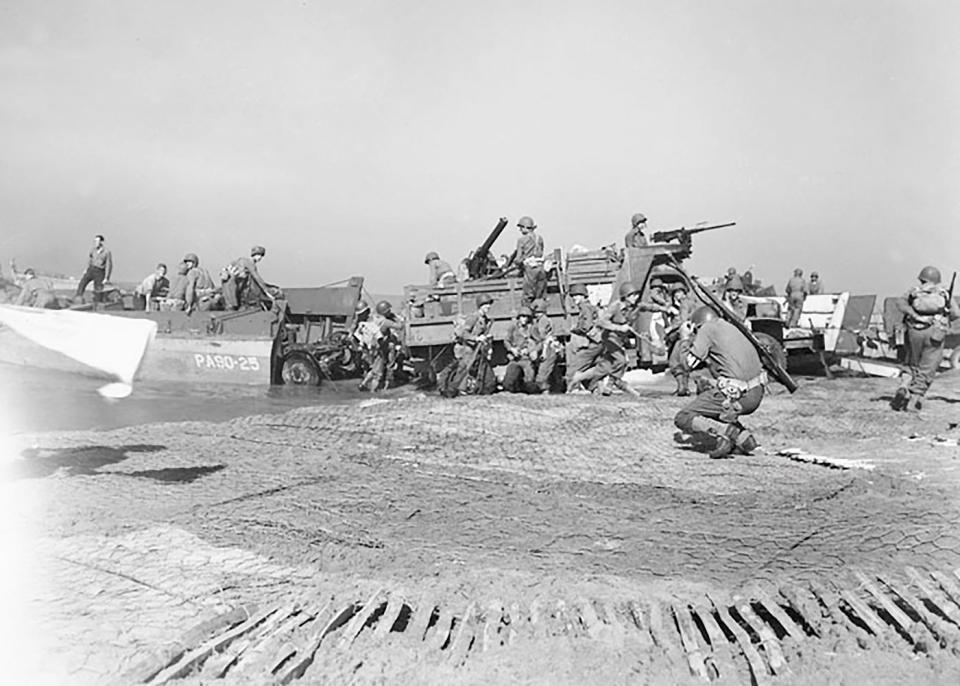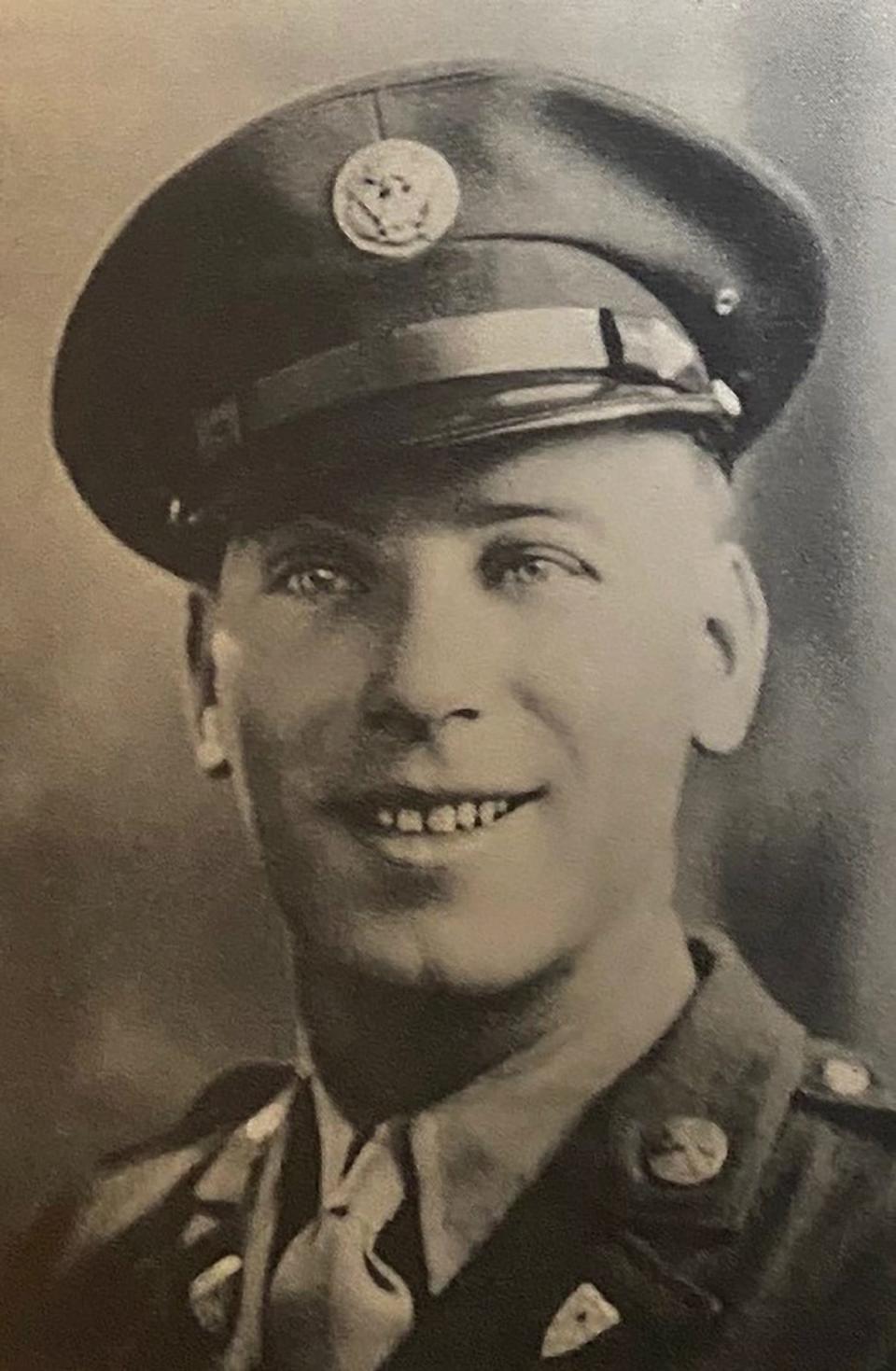Remembering Local World War II Heroes: Henry Pitkiewicz, Joseph Plona
It was not uncommon to have large Polish families living in Gardner during the 1920s and 1930s, but the Pitkiewicz and Plona families may have been record-setters during that era.
Over on 257 Pleasant St., the Pitkiewiczs merely had eight children living within the walls of their formidable home. However, some two-tenths of a mile away at 15 Wright St., the Plonas doubled that output with 16 children.
Between both clans, there was a total of 24 siblings.
No doubt many of them sat in the same classrooms at the nearby Pleasant Street School, received their sacraments at St. Joseph’s Church and whiled away many hours at the local hangout – Pulaski Playground.
There were also the neighborhood corner stores like Sokolowski and Chojnowski’s Market, Teddy’s Variety Store and Julian’s Meat Market. Perhaps they also stood outside Poikonen’s bakery taking in the pleasing aromas, or tiptoed past Kuczynski’s Funeral Home.
Childhood in “the Patch” during that era must have been a wonderful time to grow up.
Some of those young men would go on to be soldiers, leaving the cozy confines of the comfortable neighborhood, but for two of them, they would not have the fortune to return home.
This is the continuation of the series Remembering Local World War II Heroes.
Pfc. Henry P. Pitkiewicz (1918-1944)
Henry Phillip Pitkiewicz was born in Gardner on Dec. 17, 1918, the son of Anthony and Rose (Baron) Pitkiewicz, and the large family of eight children lived at 257 Pleasant St. as their father was in the produce business.
When Pitkiewicz was only 11 years of age, his father died in an apparent suicide. According to a write-up in The Gardner News, Anthony Pitkiewicz, 65, turned on four burners on a gas stove in the kitchen and left open the door leading from the kitchen to a bedroom off the kitchen. His wife smelled gas at 3 o’clock in the morning and discovered her husband’s body.

The story stated that Pitkiewicz complained of not feeling well and seemed depressed, although the family noted nothing unusual about his actions when he retired for the night.
After attending Connors Street School, Pitkiewicz left school for a job to help his family, first as a carriage worker at Gardner Manufacturing Co. He later took a job at Kuniholm Manufacturing Co. where he met his future wife, the former Cecile Sans.
Pitkiewicz was a well-known sharpshooter through his membership at the Gardner Fish and Gun Club. He and Cecile were married in 1941 and they lived at 90 Greenwood St.
He entered the military service at Fort Devens on Nov. 4, 1942, and was sent to Camp Croft, S.C., for basic training. He then headed overseas on March 3, 1943, as an infantry replacement.
He served six months in Africa and Algiers and then spent 10 months in Italy, taking part in the Naples-Foggia and Rome-Arno campaigns. In the midst of one of the battles, Pitkiewicz was wounded by enemy gunfire. After receiving treatment for his wounds, he returned to the front.
Then, on July 5, 1944, while serving with Army Company L, 135th Infantry Regiment, 34th Infantry Division, he was seriously wounded by enemy shellfire in an American attack at Rosignano, Italy. This time, Pitkiewicz died of his wounds two days later at the age of 25.
He received the EAME Campaign Ribbon with two battle stars, Purple Heart, Combat Infantryman Badge, American Theater Ribbon, World War II Victory Medal and Good Conduct Ribbon.
Pitkiewicz was survived by his mother, his wife and five brothers, Edward, Frank, Leon, Theodore and Anthony, and sisters, Mrs. Mary Stankaitis and Mrs. Jennie Serafini.
His widow, Cecile, would go on to marry Walter Hajkowski and remained in Gardner, ironically dying two and a half weeks apart in October of 1992.
Pitkiewicz was buried in the American military cemetery in Follonica , Italy. There is also a granite marker in his honor at St. John’s Cemetery in Gardner.

Staff Sgt. Joseph F. Plona (1915-1944)
Joseph Francis Plona was born in Gardner on Dec. 2, 1915, the son of Alexander and Alexandra (Wiski) Plona. He was one of 16 children in the family of Poland-born parents and lived at 15 Wright St.
While supporting such a large family, their father worked as a sander at Brown Brothers Co. on Mechanic Street, and later worked for Gem Crib and Cradle.
Joseph attended Connors Street School and later Gardner High School where he was a graduate of the Class of 1933. While in high school, he worked for Brockelman Brothers grocery store and later took a job as a projectionist at both the Uptown Theater and the Orpheum Theater. He also found work in various jobs with the Works Progress Administration.

He was also a devout member of St. Joseph’s Church where he was an altar server and also taught catechism. He married the former Alma C. Daly on Feb. 25, 1941, and they lived together at 47 Summer St., in the same home with her parents, Mr. and Mrs. William Daly.
Plona entered the military service on March 4, 1941, at Camp Edwards in Massachusetts, assigned to the Army’s 104th Infantry Regiment, serving there as well as on southern maneuvers in Tennessee.
A few weeks before the training maneuvers, there had been periods of heavy rain in the Tennessee area that caused the rivers to swell. On March 22, 1944, during large-scale Army maneuvers, Plona drowned in the Cumberland River near Nashville, Tenn.
The 28-year-old member of Company B, 104th Infantry, 26th Infantry Division, was in a boat with his crew when the vessel capsized. Despite the fact that he was an expert swimmer, he was so loaded down with equipment that he went down with the vessel. It took nearly a full month before his body was recovered.
A telegram from his commanding officer, Lt. Wilson, praised his heroic legacy:
“I have walked mile after mile just behind or beside Sergeant Plona, I at the rear of the company and he at the rear of the section. I have watched him encouraging his men, taking care of them, giving them orders and teaching them things.
“I grew to know him very well and learned much from him, as have the rest of the company in various ways. As we go into battle in which it looks now in the not-too-distant future, along with us will go the spirit of Sergeant Plona and the things he taught us.”
Plona received the American Theater Ribbon, Good Conduct Ribbon and World War II Victory Medal.
He was survived by 13 sisters: Sophie Ambroze, Josephine Skamarycz, Alice Pastic, Nancy Nardin, Victoria Klonski, Regina Kasper, Sister Mary Laetitia (Stella), Sister Mary Febronia (Jeanette) and Mae, Dorothy, Elizabeth, Cecelia and Veronica Plona; and two brothers: John and Francis.
He was buried in St. John’s Cemetery in Gardner.
Plona’s wife, Alma, did not remarry and lived out the rest of her life with her sister, Elizabeth Holt, in Gardner before she died at the age of 69 in October of 1987.
Comments and suggestions for Remembering Local World War II Heroes can be sent to Mike Richard at mikerichard0725@gmail.com or in writing to Mike Richard, 92 Boardley Road, Sandwich, MA 02563.
This article originally appeared on Gardner News: Remembering Local World War II Heroes: Henry Pitkiewicz, Joseph Plona

